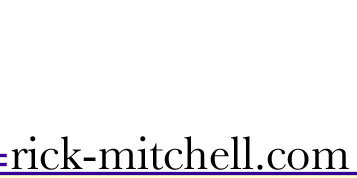France Becomes First Country to Ban
Hydraulic Fracturing for Shale Gas, Oil
By Rick Mitchell
PARIS--The French Parliament adopted legislation June 30 that bans the hydraulic fracturing method for exploration and extraction of shale natural gas and oil, making the country the world's first to ban the technique.
No one has authorization to mine shale hydrocarbons in France, but after two companies obtained exploratory permits in 2010, their plans to begin work set off an uproar over potential environmental damage.
The Law Aimed at Banning the Exploration and Exploitation of Hydrocarbon Mines by Hydraulic Fracturing prevents companies from using the so-called fracking technique, but it leaves open the possibility of using other unconventional techniques. It also requires companies or organizations holding exploration or mining permits for shale gas or oil to report to authorities the extraction technique they use, within two months of publication of the law. If a company uses the fracturing technique or fails to comply with the reporting deadline, its permits will be invalidated, according to the text of the law.
The law, which Parliament passed on a fast-track basis, requires the administrative authority—not specified in the law—to publish a list of the permits that it rescinds. Outfits that explore or extract shale hydrocarbons using the hydraulic fracturing method following publication of the law risk one year in prison and a €75,000 fine ($109,000).
‘Full Vigilance' Promised
The Senate, France's upper house of Parliament, passed the final bill in a narrow party-line vote June 30. The text was produced by a joint parliamentary committee of members from the Senate and the National Assembly, the lower house. The Assembly adopted the final bill June 21.
Speaking to Parliament, Nathalie Kosciusko-Morizet, minister of ecology, sustainable development, and transportation, promised “the government's full and entire vigilance for enforcement as soon as [the law] is published” in the official journal.
The opposition Socialist party voted against the bill in both houses, complaining that the law does not ban other extraction techniques for shale hydrocarbons. The party had threatened to challenge the law in the Constitutional Council, France's highest constitutional authority, but party officials decided against the move, saying they feared a challenge could allow companies to proceed with exploration.
Orientation Commission Created
The law creates a National Orientation Commission to evaluate techniques for exploring and mining liquid and gas hydrocarbons, in particular the environmental impacts of hydraulic fracturing and other unconventional extraction methods.
Under the law, the government must submit a yearly report to Parliament on the activities of the commission, on changes in hydrocarbon gas and oil exploration technology, and knowledge of deposits for France and the world in general. In the report, the government also must consider how current mining operations and research comply with French and EU environmental law, and what changes might be necessary.
The law also bars any scientific research on shale hydrocarbons that uses the fracking technique.
The Union Francaise des Industries Petrolieres, which represents most petroleum companies in France, said in a prepared statement, “The law will prevent evaluation of shale hydrocarbon resources and their impact on the French economy.”
UFIP said it would collaborate in the work of the new commission and expressed hope that the commission could clarify the importance of shale hydrocarbon research.
No Extraction Permits in France
Natural gas and oil deposits in shale are trapped one to three kilometers (0.62 to 1.86 miles) underground in rock not permeable enough to allow oil and gas to flow into a standard well. Consequently, extraction often requires hydraulic fracturing of rock, which injects a mix of water, sand, and chemical additives into layers of rock at high pressure to allow natural gas or oil to flow into a well.
According to environmental groups, that process can cause more environmental damage than conventional drilling, in particular through contamination of groundwater.
The government said earlier in 2011 that it was intrigued by recent U.S. success in producing shale gas, which has allowed the United States to slash imports of liquefied natural gas.
France has issued no permits to date for extraction of shale gas and oil, but the government said it had issued three exploration permits for oil and three for natural gas trapped in underground shale deposits.
With these permits in hand, two companies—Toréador Energy France and Vermilion—had announced plans to begin explorations in March for deposits in the Paris region and in the south of France.
However, in response to an outcry by environmental organizations, the government in February temporarily barred any unconventional drilling and related processes. In the face of growing public concerns, the ruling UMP (Union pour un Mouvement Populaire) Party in late March proposed the bill to ban all uses of hydraulic fracturing.
Toréador and Vermilion did not immediately respond to requests for comment.
Many Deposits in Paris Region
According to France's largest environmental advocacy group, France Nature Environment, the Paris region has numerous shale oil deposits that only recently have become accessible due to technology advances.
FNE said the hydraulic fracturing process can lead to contamination of groundwater. It said use of the fracking method would, if successful, choke off attempts to develop renewable energies and cripple efforts to meet the country's legally binding goal to slash greenhouse gas emissions by 75 percent by midcentury.
(July 6, 2011)

